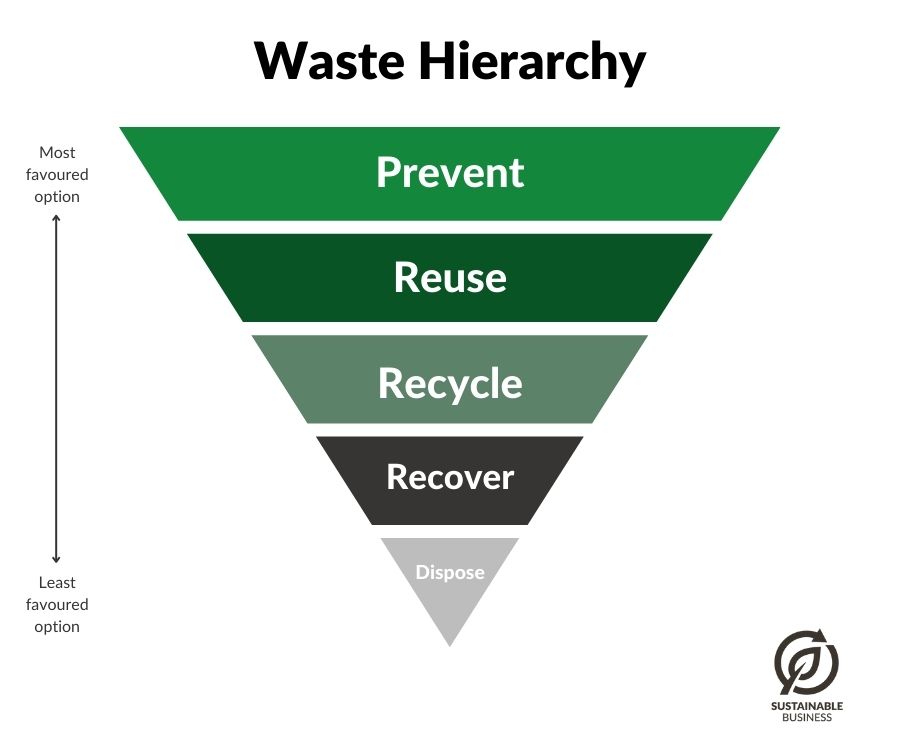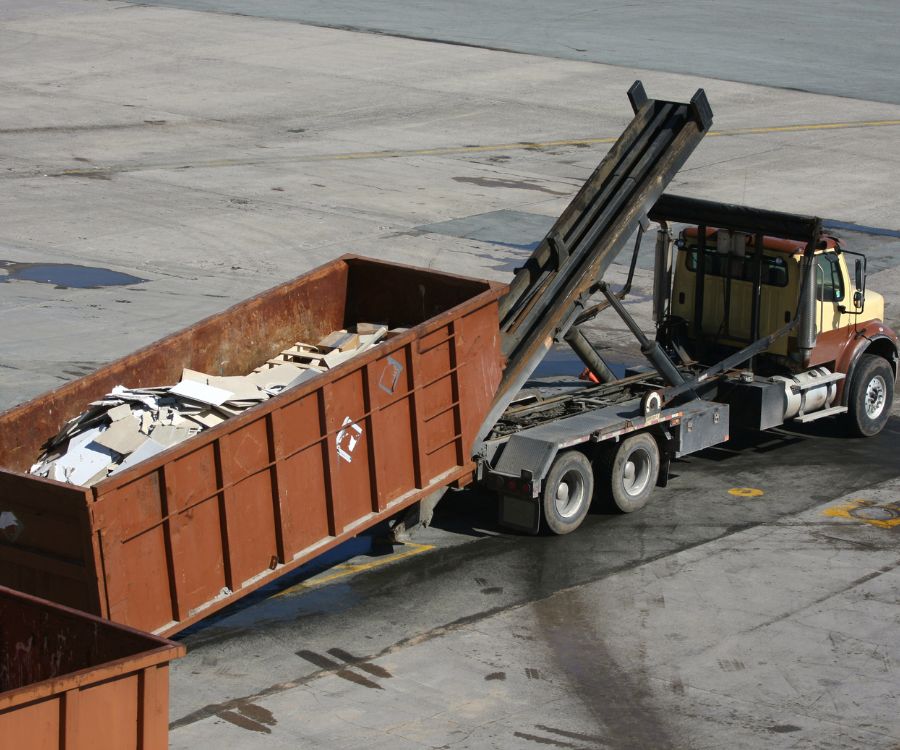Recycle Week 2022 takes place from the 19th – 25th September 2022 and is the perfect time to think about, and take action on waste.
Whether you’re motivated by environmental factors or economic ones, now is the perfect time to develop a strategy for reducing your commercial waste.
A waste management plan helps meet your legal requirements, reduces your costs and impacts on the environment.
In this blog, we provide our top tips for reducing your business waste.
Waste in the UK
Our take, make, use, and dispose of culture is using earth’s resources at an unnatural rate, damaging ecosystems on every continent. This is evident in the fact that, according to Statisa, each person in the UK produces 760kgs of waste each year, one of the world’s highest waste volumes per capita! On average, each person in the UK throws away their own body weight in rubbish every seven weeks!
According to government figures, it is estimated thatIt is estimated that the UK generated 43.9 million tonnes of commercial and industrial (C&I) waste in 2018, of which 37.2 million tonnes (85%) was generated in England, which is enough to fill 4,700 Olympic-sized swimming pools
With over 4.9 million private sector businesses in England, 342,000 in Scotland, 207,000 in Wales, and 123,000 in Northern Ireland, the volume of business waste ending up in a landfill is causing a major waste crisis.
The Waste Hierarchy
The waste hierarchy is a system used to consider the different waste management options available to you as a business owner, with options ranked from low to high based on their environmental impact.
All UK businesses must be familiar with the waste hierarchy, with many businesses having a legal obligation to evidence its consideration when choosing a waste management option.
Even waste transfer notes and waste consignment notes now include a declaration saying that the waste hierarchy has been applied to the waste.
It’s essential you understand the five levels and strive to make efforts to move your waste disposal up the funnel.

Prevention
Prevention is the first point of focus within the waste hierarchy. This is the act of avoiding creating waste in the first place, rethinking use of materials during the design, manufacturing and packaging stages.
Reuse
If prevention is not an option, the first consideration for waste is reuse. By cleaning, repairing, and refurbishing items, businesses can significantly increase the number of things they can reuse.
As single-use products become more unpopular with customers and demand increases for reusable alternatives, your business should start thinking outside of the box.
Recycling
Recycling is the most environmentally friendly solution when it comes to disposing of waste. Recycling essentially turns our waste into a new item or product, reducing the volume of raw materials required and reducing the amount of items left behind without a purpose.
Recovery
Recovery is the next best option when the first 3 Rs in the waste hierarchy cannot be applied. For waste that cannot be recycled, it may be possible to recover energy in the form of “waste to energy” (WtE).
Waste to energy is the process of incinerating non-recyclable waste to produce electricity. WtE helps reduce our reliance on fossil fuels and decreases carbon emissions.
Disposal
The least sustainable option in the waste hierarchy and the last resort for your waste, is landfill. In the UK, landfill is highly taxed by the government to help promote more sustainable methods in the waste hierarchy.
How can Groundwork help you with waste management?
Improved waste management and energy efficiency means a healthier balance sheet. In times of economic uncertainty, this is particularly crucial for your businesses survival.
With advice from our business consultants your business can make sound waste management choices which cut costs and reduce your impact on the environment.
In addition, our waste training can help engage your staff on the wider environmental context of waste and can include content on waste duty of care to ensure compliance within your organisation.
Contact our environmental consultants today to learn more.


